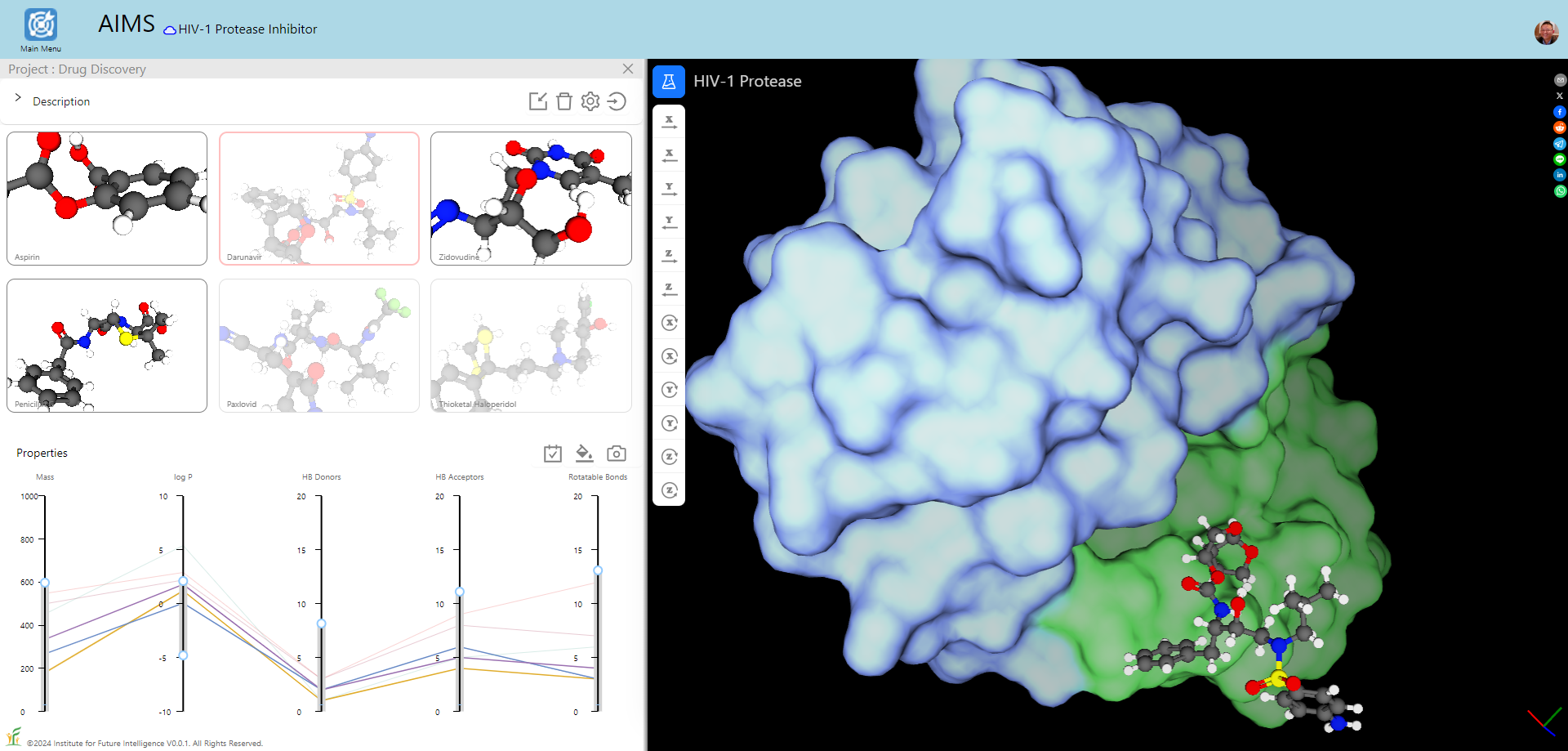Adventures in Drug Discovery: Integrating Data Science into the Science Curriculum

Project Website(s)
-
Project Description
Artificial intelligence promises to accelerate the process and lower the cost of drug discovery. Integrating data science into high school chemistry and biology will prepare students with data and computing skills needed in this vital frontier of biomedical research while enhancing their learning of science and engineering expected by the Next Generation Science Standards. This project will combine culturally responsive teaching and inquiry‐based learning to promote equity and diversity.
-
Abstract
In this Adventures in Drug Discovery (ADD) project, the Institute for Future Intelligence (IFI) and the University of Florida (UF) will collaborate with diverse high schools in Florida, Hawaii, Maryland, Ohio, Rhode Island, and South Carolina to develop novel educational technologies and curriculum materials to help teachers and students teach and learn data science as a method for accelerating drug discovery. The key innovation will be Artificial Intelligence for Molecular Science (AIMS, https://intofuture.org/aims.html), an integrated learning platform based on using visual and interactive technologies to open the “opaque box” of the science, data, and computation needed to find or design new drugs. Powered by AIMS, the curriculum materials will provide practical means to integrate data science into chemistry and biology courses. The materials will be aligned with related education standards such as the Next Generation Science Standards. The project will integrate culturally responsive teaching and inquiry‐based learning to promote equity and diversity. Participating teachers will be supported by ongoing professional development workshops and learning communities. The products of the project will be disseminated through a citizen science program that uses a gamified version of AIMS to engage the general public to explore drug discovery. After the project ends, IFI will maintain the products to ensure that they continue to serve teachers, students, and the public. The scope of this project falls within the mission of NIH’s National Center for Advancing Translational Sciences (NCATS) related to “incorporating artificial intelligence and machine learning into the drug development process.” The Specific Aims are: 1) To develop the AIMS technologies and materials using a design‐based research framework that involves iterative design cycles informed by student and teacher feedback based on classroom tests; 2) To leverage the complementarity between culturally responsive teaching and inquiry‐based learning to develop content that accommodates the unique interests, values, and funds of knowledge of diverse students; and 3) To create a citizen science program for drug discovery based on gamifying complex computational procedures such as molecular docking and drug screening. To supplement IFI and UF’s expertise, the project will also involve researchers and educators in molecular science, data science, and serious games for citizen science from Harvard Medical School, South Dakota State University, and Northeastern University as consultants.






